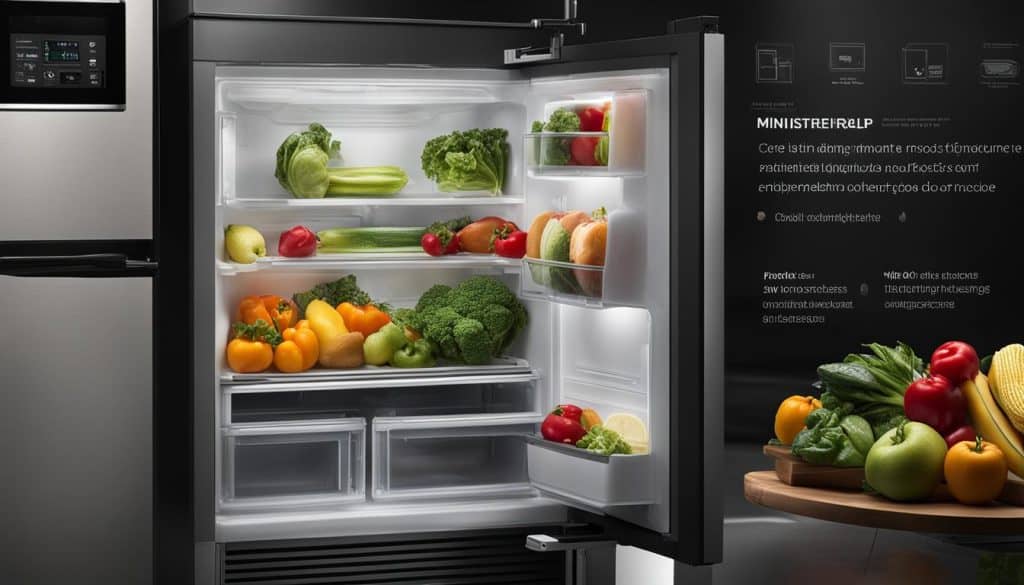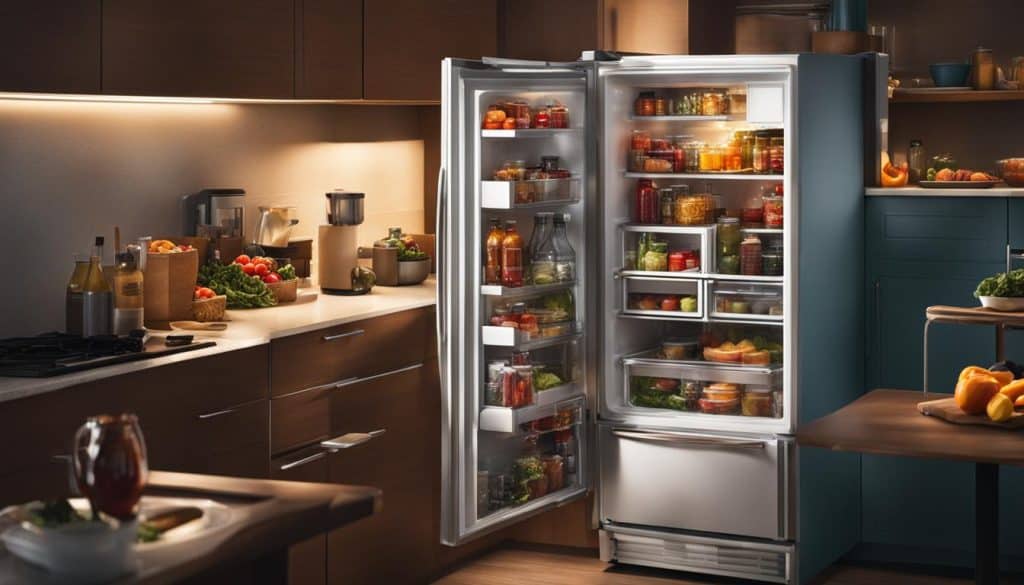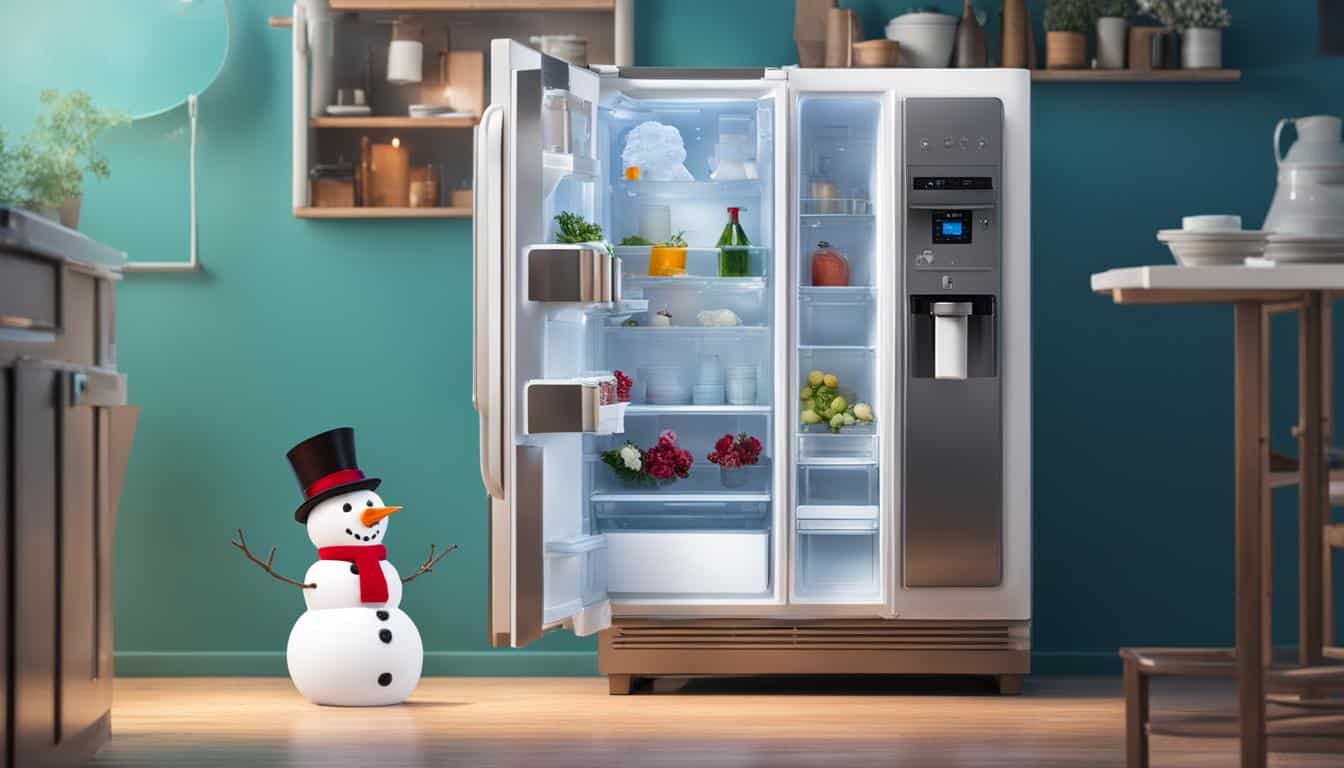Do you know that many common beliefs about frost-free refrigerators are far from accurate? As technology advances and new features emerge, outdated assumptions and misconceptions can mislead buyers or users.
In this article, we will debunk some of the most persistent Frost-Free Refrigerator Myths and separate fact from fiction. By doing so, you can make informed choices when purchasing or using a frost-free refrigerator in your kitchen.
Whether you’re having issues with maintenance, storage, or energy consumption, the information below will help you understand the truth behind the claims.
Therefore, before making any decisions or assumptions, read on and discover what you’ve been missing out on!
Myth #1: Frost-Free Means Maintenance-Free
One of the most common misconceptions about frost-free refrigerators is that they require no maintenance since they don’t need manual defrosting. While this may be true, regular upkeep is still necessary to ensure optimal performance and prevent ice buildup.
The evaporator coils and drain pan are two components that are susceptible to collecting dust, dirt, and debris. This buildup can impede the efficiency of the coils, which should be clean to enable proper cooling and ventilation.
A dirty drain pan can also result in unpleasant odors, leaking, or even water damage to the floor. Therefore, it is crucial to clean these two components to prevent any issues.
| Component | Maintenance |
|---|---|
| Evaporator Coils | Wipe with a damp cloth or use a brush to remove any debris. |
| Drain Pan | Empty and wipe with mild soap and water. Avoid using chemicals that may damage the drain pan. |
These simple maintenance practices can help increase the lifespan of your frost-free refrigerator, reduce potential repairs, and ensure optimal performance.
Keep in mind that failing to clean the evaporator coils and drain pan can lead to ice buildup, decreased efficiency, and even overheating. Thus, it is crucial to maintain these components for a smooth and seamless refrigerator experience.
Myth #2: They Dry Out Food Faster
It’s a common misconception that frost-free refrigerators dry out food faster. While these refrigerators do have higher air circulation, they also have built-in humidity control systems that prevent excessive drying.
In fact, these systems are essential in preventing moisture loss and preserving the quality of your food. Proper storage techniques, such as wrapping leafy greens in paper towels or using airtight containers, can also help minimize moisture loss and extend the shelf life of your groceries.
One clever solution to minimize moisture loss and optimize storage space is to invest in vacuum-sealed bags.
These bags not only prevent excess air from drying out your food, but they also provide airtight and compact storage. Make sure to label each bag with the date of storage and type of food to easily keep track of your inventory.
“Proper storage techniques, such as wrapping leafy greens in paper towels or using airtight containers, can help minimize moisture loss.”
Humidity control is also crucial to prevent spoilage and bacterial growth. Most refrigerators come with adjustable humidity drawers that allow you to control the moisture levels inside.
It’s important to maintain a balance between high and low humidity levels, as too much moisture can lead to the growth of mold and mildew, while too little moisture can cause dehydration and spoilage.
Lastly, consider investing in specialized moisture control systems like zeolite or silica gel packets. These small packets absorb excess moisture and help preserve the freshness of your food for longer periods.

Myth #3: They’re More Expensive to Run
Are you hesitant to buy a frost-free refrigerator because you’re worried about how much it will cost to run? You might be surprised to learn that this is a common myth, and it’s not entirely true.
While older frost-free refrigerators may have been expensive to run, modern ones are highly energy-efficient. They’re designed to consume much less energy than traditional refrigerators, thanks to advanced insulation and power-saving features.
When shopping for a frost-free refrigerator, be sure to look for models with an energy star rating.
This rating indicates that the appliance has been certified to meet specific energy efficiency requirements. By choosing an energy-efficient model, you can optimize your energy savings and enjoy a lower monthly electricity bill.
Remember that even though frost-free refrigerators are energy-efficient, you still need to maintain them properly for optimal performance.
Simple maintenance practices, such as cleaning the condenser coils and replacing worn-out seals, can go a long way in ensuring your refrigerator runs smoothly and doesn’t consume more energy than it should.
At a Glance:
| Myth | Truth |
|---|---|
| Frost-free refrigerators are expensive to run. | Modern frost-free refrigerators are highly energy-efficient and can save you money on your monthly electricity bills if you choose a model with an energy star rating. |
Myth #4: They’re Louder Than Traditional Refrigerators
Are you concerned that a frost-free refrigerator will be louder than a traditional one? Don’t be! Thanks to advancements in technology, modern frost-free refrigerators are virtually silent. The noise levels are typically below 40 decibels, barely louder than a whisper in a library.
So how do they achieve such quiet operation?
Firstly, manufacturers have heavily insulated their refrigerators, reducing vibrations and noise from the compressor.
Secondly, they’ve developed technologies that reduce the noise generated during the defrost process.
Lastly, many models feature variable speed compressors that can adjust their operations based on the refrigerator’s cooling demands. This feature’s ability to reduce noise levels, while also increasing energy efficiency, has made it a favorite among manufacturers and consumers alike.
But don’t just take our word for it. The following table lists the average noise levels of popular frost-free refrigerators compared to traditional refrigerators:

As you can see from the table, frost-free refrigerators are not only as quiet as traditional refrigerators, but some are even quieter!
So don’t let noise levels influence your decision. Advancements in technology have made frost-free refrigerators incredibly quiet, ensuring that they won’t disrupt your daily routine or peaceful moments in your kitchen.
Myth #5: They’re Less Spacious
Do frost-free refrigerators take up too much space in your kitchen? It’s a common myth that couldn’t be farther from the truth.
Thanks to advancements in technology, manufacturers have been able to s ink internal components without sacrificing storage space. So, you get more spacious refrigerators that can accommodate all of your groceries without cramping your kitchen’s style.
Many modern frost-free refrigerator models offer clever storage solutions that make them even more spacious.
Adjustable shelves and drawers help you organize your groceries better and make room for tall items such as bottles and pitchers. Clever storage solutions provide ample room for everything you need.

So, if you’re thinking about getting a frost-free refrigerator but worried about a cramped kitchen, worry no more! The technology and clever storage solutions inside modern frost-free refrigerators ensure you’ll have ample room for all your groceries– oversized or not!
Myth #6: They Spoil Food Faster
Are you concerned that your frost-free refrigerator is spoiling your food too quickly? Don’t believe the myth that this type of refrigerator is responsible for faster food spoilage.
The consistent temperatures maintained by frost-free refrigerators prevent the hot or cold spots that can cause food to spoil faster.
However, to enhance food safety, it’s essential to adopt proper food storage practices. Inappropriate food storage practices can increase the risk of contamination. Store your food properly by following these practices:
- Store different types of food in different zones to prevent cross-contamination.
- Make sure that raw meats are well-wrapped and placed in a designated separate area. This step will minimize the risk of cross-contamination with cooked foods.
- Avoid overcrowding the refrigerator by arranging your food properly. Overcrowding can cause improper air circulation, making it difficult to maintain consistent temperatures t oughout the refrigerator.
- Do not store cooked food for more than t ee days. Always use petroleum jelly or vegetable oil on the edges of containers to keep them airtight.
- Keep an eye on the temperature of the refrigerator and ensure it’s between 32-40 degrees Fa enheit to prevent bacterial growth.
- Follow the expiry dates on food items and dispose of anything with mold or a foul odor immediately.
By following these food storage practices, you can keep your food fresh and safe to eat for longer, regardless of the type of refrigerator you have.

Myth #7: They’re More Prone to Breakdowns
Many people believe that frost-free refrigerators are prone to breakdowns, leading to concerns about their reliability and longevity. However, this is simply not true.
In fact, frost-free refrigerators have a simpler defrosting mechanism compared to manual defrost models, reducing the potential for breakdowns. With regular maintenance and proper use, you can ensure that your frost-free refrigerator remains reliable and lasts for many years.

Regular maintenance is key to keeping your frost-free refrigerator running at optimal performance. Clean the condenser coils at least twice a year to prevent dust buildup, which can impede airflow and overwork the compressor.
Make sure the door seals are tight, and use a mild detergent and warm water to clean them periodically to prevent cracks and leaks. Additionally, be careful not to overfill your refrigerator, as this can strain the motor and lead to breakdowns.
By establishing a regular maintenance routine, you can minimize the risk of breakdowns and ensure the longevity of your frost-free refrigerator. Don’t let the myth of breakdowns hold you back from choosing a highly efficient and convenient appliance for your kitchen.
Myth #8 to #10: Common Misconceptions
When it comes to frost-free refrigerators, there are a few more myths that we need to debunk.
- Firstly, you don’t need any special cleaning chemicals to keep your fridge looking and smelling fresh. Mild soap and water is enough to get the job done, and it won’t harm the interior or exterior surfaces.
- Power outages are another concern that some people have with frost-free refrigerators. However, these appliances are designed with insulated walls that keep your food cool even during an outage. As long as you keep the door closed, your food should stay fresh for a few hours.
- Some people view frost-free refrigerators as a luxury, but they are a necessity in most American kitchens. The convenience, efficiency, long-term benefits, and energy savings that these appliances offer make them a wise investment.
So, don’t be fooled by the frost-free refrigerator myths you may have heard. With regular maintenance, proper use, and a bit of common sense, you can enjoy the benefits of a frost-free refrigerator in your home for many years to come.


